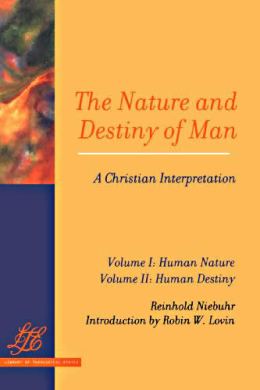
The intellectual championing of humility and skepticism isn’t the easiest way to inspire a devoted following, but it’s for that very agenda that 20th century theologian Reinhold Niebuhr has the ears of the wisest of men. The crossroads of ontology and its application for modern life as it’s actually lived is where Niebuhr holds court. In The Nature and Destiny of Man, Niebuhr delves into spiritual and Christian themes in the shadows of perhaps the least holy event in human history — World War II. “Man,” Niebuhr writes, “is a sinner not because he is one limited individual within a whole but rather because he is betrayed by his very ability to survey the whole to imagine himself the whole.” His emphasis on the powerlessness of man to bend the world to his will and, more important, the danger of trying to do so calls to mind Edmund Burke’s 18th century distaste for the radical nature of the French Revolution. Niebuhr would go on to further rail against messianism in Children of Light and the Children of Darkness. His thinking and discussion of actual policy made him the statesman’s philosopher. Among the government programs and policies that trace their roots to Niebuhrian skepticism are Cold War containment and the realpolitik school of foreign policy.
